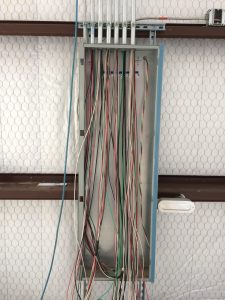 Circuit Breakers—every house has them and not enough homeowners know how to deal with them. Circuit breakers are like the weather, they’re everywhere and anyone who doesn’t know how to deal with them is in for a few bad days in the lifetime of their home. That’s why we’re going to go over a few reasons why circuit breakers trip and blow, and what you can do to help prevent these problems.
Circuit Breakers—every house has them and not enough homeowners know how to deal with them. Circuit breakers are like the weather, they’re everywhere and anyone who doesn’t know how to deal with them is in for a few bad days in the lifetime of their home. That’s why we’re going to go over a few reasons why circuit breakers trip and blow, and what you can do to help prevent these problems.
While there are always things you can learn about the electrical systems in your home, it’s generally a better idea to have one of the many electricians in Boerne, TX address issues with these systems. Circuit breakers can be expensive to replace and can also be a safety hazard when approached without the right gear and expertise. That being said, let’s take a deep dive into what really happens to your electrical systems so you can be more informed next time you’re dealing with a blown circuit.
Overloaded Circuit
This is the most common reason for a circuit breaker to blow. Your electrical system is a balancing act, where the different outlets need a steady supply of power without overloading the circuit itself. When too many appliances, lights, or devices are operating on the same line at the same time, the internal sensing mechanism in the circuit breaker heats up and the breaker trips. This shuts down the circuit unless it can manually be switched back on. This circuit tripping happens before the wires can heat to a dangerous degree that creates a fire hazard.
If your circuit breaker is regularly tripping, this signals one of two possibilities:
- You are making excessive demands on one circuit.
- Your home has too few circuits and needs an electrical upgrade.
So, either cut back on your electrical usage or schedule an appointment with an electrician to upgrade your circuit system.
Short-Circuit
Either when a wire’s insulation breaks down, or when another conducting material is introduced to your circuit system (through an outlet or other means), short-circuiting is a much more serious problem to be concerned with. This creates an electric current that can result in circuit damage, overheating, fire or explosion, which are never good results. Short-circuiting can be a result of faulty wiring in a device or appliance as well, so it can be a bit harder to diagnose than other electrical problems. Either way, contact an electrician for a problem like this.
Ground-Fault Problem
Do your circuits keep blowing from an outlet issue related to your bathroom? It could be from a ground fault. Ground fault issues are a type of short-circuiting that occurs when a current touches either a wood frame or water. If your electricity keeps shutting down to your bathroom, it could be from excess moisture and water coming into contact with the outlets. This can actually be addressed quite easily with a GFCI (ground-fault circuit interrupters) outlet that stops the initial short-circuit from becoming a hazard. Without a GFCI, you definitely run the risk of being shocked by coming into contact with moisture or anything connected to your bathroom outlet.
If you’re encountering constant circuit breaker problems, contact our team at D’Spain Sales & Services!















